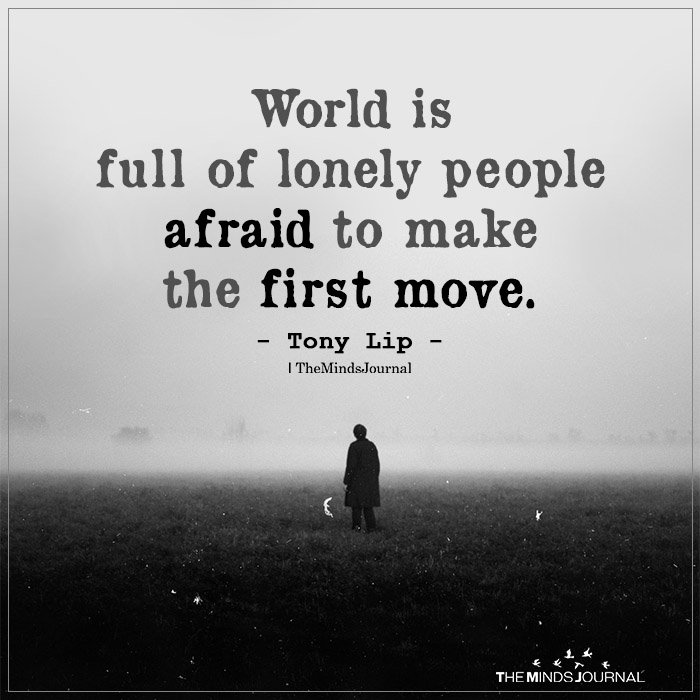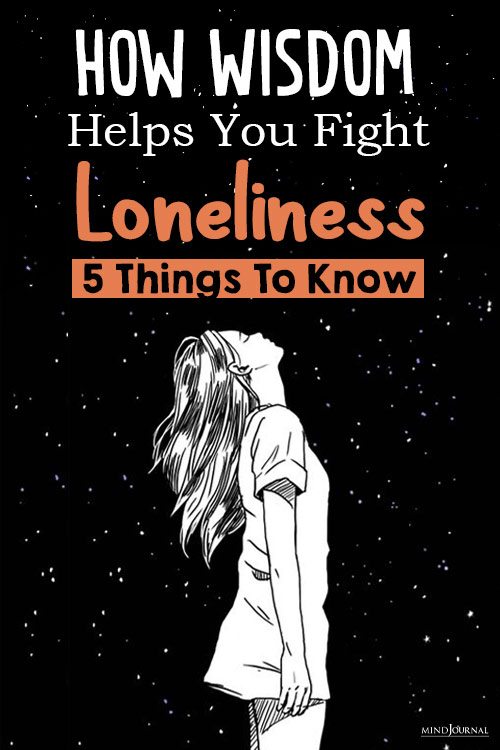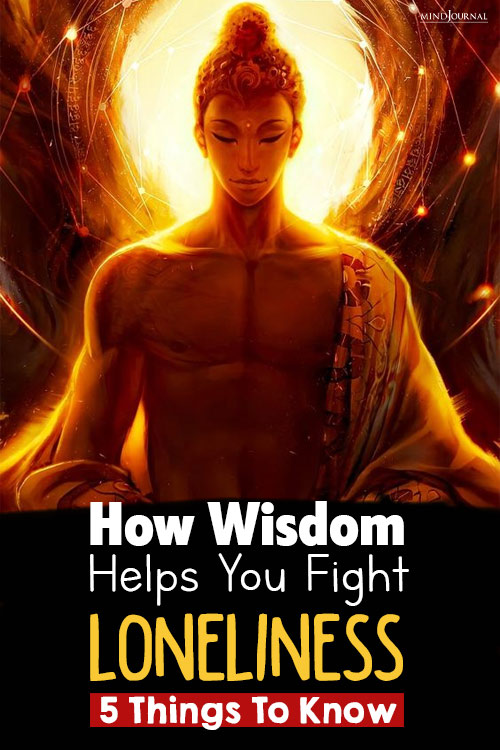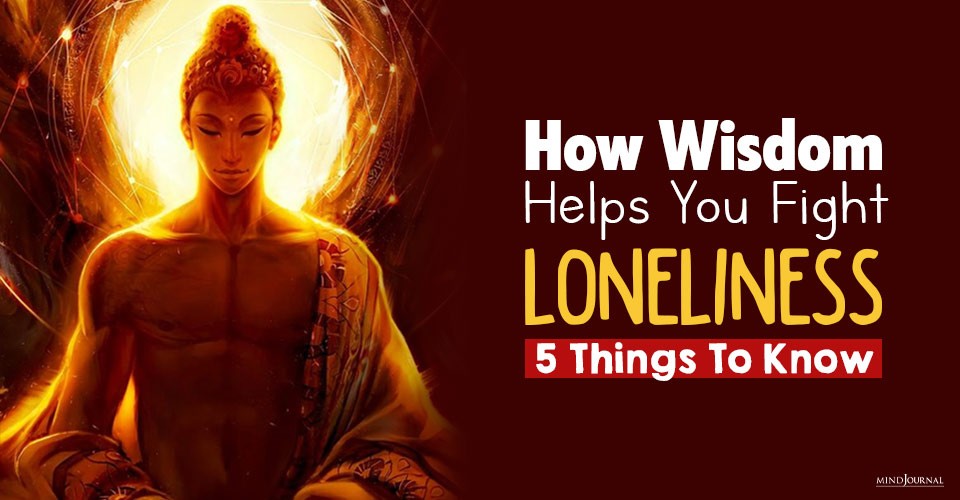Loneliness is harmful to both physical and mental health. Research says you can fight loneliness by turning to wisdom. Read on to know some interesting insights into fighting loneliness.
The Basics
Research on loneliness found that the more wisdom a person exhibited, the less lonely they felt.
Individuals high in wisdom advise others to avoid defining themselves based on a difficult moment, to keep the bigger picture in mind, and to find ways to do something kind.
Wisdom is not exclusively held by older people, or necessarily tied to age at all.
Anna* has become increasingly lonely during the COVID-19 lockdown. “My work is pretty solitary at the best of times, and although I love what I do, I need some social contact. I ‘see’ friends on Zoom, and occasionally I meet someone for a socially distanced walk. But I’m feeling so desperate for social interaction I’m tempted to break all the safety rules just to have some company.”
Dave’s* children are in college but have been home more than usual in recent months because of the pandemic. “They’ve all gone back to school now,” he said. “And my wife and I are looking around us and talking about how quiet the house is—how lonely it is without them.” Even though he and his wife get along well, they are both feeling sad and lonely without the children. “Maybe if we had other social contact it would be different. But it’s just us, and it feels—I don’t know. Kind of sad, I guess. We’re both a little down these days.”

Even before the pandemic, loneliness across all age groups had become a growing concern around the world. Researchers have described loneliness as “the latest global health epidemic, with serious health implications” that can include poor general health, bad quality of sleep, and general feelings of unhappiness. Loneliness, or a feeling of sadness about being disconnected or cut off from others, is different from being alone. You can be alone and not feel lonely, and you can be with people and feel lonely.
If you have been feeling lonely, isolated, or without enough meaningful personal connections, you aren’t alone. But what can you do about it?
Research On Fighting Lonliness
One study decided to try to answer this question by looking at loneliness in two very different populations, one in a rural region of southern Italy and the other in an urban/suburban county in the United States. The groups spoke different languages and had different historical, educational, and socioeconomic backgrounds, according to lead researcher Salvatore Di Somma, M.D., Ph.D.
What the study found was that despite these differences, both groups showed statistically meaningful evidence that the more wisdom an individual exhibited, the less lonely they felt.
But doesn’t wisdom come with age and time and experience? How does that help you now, at this point in your own life? I decided to do a little non-scientific research on my own, to see how these findings can help you fight loneliness back from the door. Here’s what I found.
My friend Brenda*, who is in her nineties and has been widowed for many years, said, “I never feel lonely. I love my time alone—to read, or listen to music, or take a walk or just to be. But I also love time with my friends, with my children and grandchildren, with people I meet on the street. Being involved with the world keeps me from feeling lonely.”

Related: How to Not Get Emotionally Attached to Someone: 8 Simple Rules to Follow
Jack,* a man in his late sixties, who has been in a long-term relationship with Arthur,* also in his sixties, said he sometimes feels lonely, but it doesn’t last long. “I have so many other things to take up my time,” he said. Jack and Arthur lost many friends during the height of the AIDS epidemic and are deeply committed to educating men about the ongoing risks of unprotected sex. “I guess you could say our life mission keeps us from getting too caught up in feeling lonely,” he told me.
Betty, Jack, and Arthur all capture the aspect of wisdom that researchers found is the most powerful tool against loneliness: an ability to see ourselves in the context of a larger picture. That picture can vary greatly from person to person, and even from time to time in each of our lives. You don’t have to have more friends or do some important social project to fight loneliness. Wisdom involves simply expanding your base.
In his book, Timeless: Nature’s Formula for Health and Longevity, Louis Cozolino, professor of psychology at Pepperdine University, tells us that research shows that our brains are wired for connection. This means that maximizing interactions with others can keep our brains active and engaged. And keeping our brains busy helps us fight loneliness.
But you don’t have to be surrounded by friends and family to have a connected brain. In fact, according to Ursula M. Staudinger, author of A Psychology of Wisdom: History and Recent Developments, Research in Human Development, wisdom involves things like “good judgment,” “moderation,” an ability to handle the complex interplay of knowledge and doubt, an ability to look for a “moderate course between extremes,” a “sufficient detachment from the problem at hand” that makes it possible to problem-solve wisely, and “a well-balanced coordination of emotion, motivation, and thought.”
All of these qualities of wisdom imply an ability to be self-reflective and proactive, two abilities that played out in the comments about loneliness that I heard in the small sample of people I consider to be wise. I thought I’d list some of the specifics that they said.
Here are 5 Intresting Insights To Help You Fight Lonliness
1. Don’t Define Yourself Based On A Moment, Or Even A Period In Time.
“Loneliness is a moment in time, a blip on the screen. It doesn’t tell me that I’m bad or unlovable. It’s not about me and it’s not permanent. I can always do something about it.”
Related: The Importance Of Being Earnest and How It Will Help You Attain Peace
2. Connect In Small Ways.
“I don’t feel lonely because I’m always connected. Even if I’m not talking to anyone I love or care about, I know I can always find a person who I feel some sort of link to—even if it’s a stranger on a bus.”
3. Do Something Kind Or Compassionate For Someone Else.
“When I’m lonely, I think about how selfish it is. I could be making some sort of contribution to other people’s well-being. As soon as I do something kind for someone—even if it’s just saying hello and asking them how they’re doing—any loneliness I might have felt is gone.”
4. Take A Positive Action.
“There are people in the world who, for emotional or physical reasons, cannot reach out to other people. That’s true loneliness. I live alone, but I’m not lonely. I have far too much going on to ever feel lonely.”
Related: 5 Tips To Help Get Rid Of Negative Thoughts
5. Look At The Bigger Picture.
“If I start to feel lonely, I think about the address on the letter in the play ‘Our Town.’ It starts out with the person’s name and address, but it keeps going. I memorized it because it reminds me that we’re all located in a much larger context. This person was in their town, in the United States of America, then Continent of North America; Western Hemisphere; the Earth; the Solar System; the Universe; the Mind of God. I’m not religious—it’s not the Mind of God that was important to me. It was the idea that I’m part of an immense universe. As soon as I start thinking about that, I don’t feel lonely anymore.”
Wisdom, say the researchers, includes an ability to be reflective and thoughtful about any experience. It also includes an ability to step back and see things not as simply about ourselves, but as about a context and a situation. And finally, it involves a capacity to see things as complex, multi-faceted, and often contradictory, and to find ways to manage these contradictions with some degree of flexibility.
I am sure you know plenty of elderly people who do not have these skills, which is simply to say that wisdom does not always come with age. There are many young people who have these skills, and of course, many older folks who don’t.
The task for each of us is to develop them for ourselves, at whatever age we can. When I introduced the idea to Anna, for example, she said, “I hadn’t thought about it that way. When I put myself into a larger context, though, I can see that I already have plenty of connections; the work for me is just to find some ways to enliven my interactions without breaking rules or putting myself or someone else in danger. And it helps a lot to remember that there is a bigger picture out there. I read today that the virus is diminishing; just thinking about it makes me feel less lonely.”
*Names and identifying information changed to protect privacy.
Please share these wise tips to fight loneliness with anyone who you may think will find it valuable and helpful.
Written by: F. Diane Barth
Originally appeared on: Psychology Today
Republished with permission










Leave a Reply
You must be logged in to post a comment.